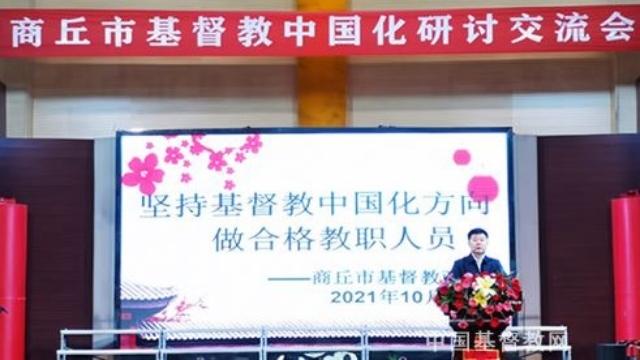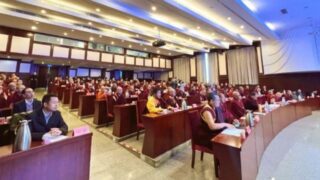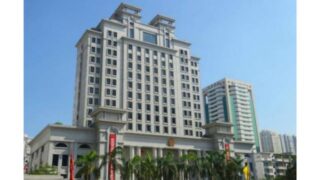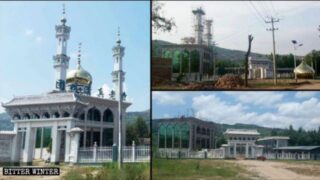Sermons should introduce “Sinicized Christian social teaching,” claiming that the Shang Dynasty invented state-controlled agriculture and commerce.
by Yan Mingli


In October, China traditionally honored the Shang Dynasty, whose emperors ruled in the second millennium BCE. Shang celebrations were wiped away by the Cultural Revolution but have been revived since, and connected to a peculiar economic historical myth revamped by the CCP for its own purposes. Now, Christian pastors of the government-controlled Three-Self Church are told that they should preach the same myth in their sermons.
On October 26, Three-Self pastors and teachers gathered in Shangqiu, a city in Henan that was a center of the Shang Dynasty, for a “Sinicization Seminary and Exchange Conference.” Besides raising the national flag and singing patriotic songs, participants were told that Christian social teaching should be “Sinicized” as well, and that a “Research Office of Sinicization of Christianity” will be established in Shangqiu.
They were told that sermons should be preached on “the origin of Chinese businessmen” (华商之源). The seminar proposed model sermons on this theme for urban and rural areas, and competitions where awards were given to those preaching the best sermons on the subject.
“The origin of Chinese businessmen” (businesswomen were not considered) has become a key theme of the CCP’s rewriting of history, combining nationalist mythology and Socialist ideology.


Traditionally, it was argued in China that in 商人 (shangren, businessman), the character 商 (shang), which is also the name of the Shang Dynasty and part of the name of the city of Shangqiu, derived from the Shang Emperors, which were the first in the world to invent “business.” The theories advanced by modern Western scholars that in fact the word shangren, “businessman,” originally derived from Thai or Tibetan terms for “merchants” are anathema to Chinese nationalists and to the CCP, as they raise doubts on the claim that business was invented in China.
The CCP supplemented the nationalist theory with the idea, which corresponds to Marxist ideology, that business was not invented as a private enterprise but as something strictly controlled by the state. The state was embodied in the Shang Emperors. It is said that a man named Nanbo invented agriculture, and one Wang Hai was the first to tame wild oxen. He invented ox carts and commerce, and became “the ancestor of Chinese businessmen.”


The two lessons derived from this myth and taught to Chinese children in schools are that business was invented in China, not in the West, and that just as Marx and Engels said, commerce and agriculture were originally state-controlled rather than private activities.
Shangqiu has been put on the tourism map by the promotion of “the origin of Chinese businessmen” story, and festivities are held every year. Now, the story and its implications should be preached also in Christian churches. It is the new Christian social teaching, CCP-style.









